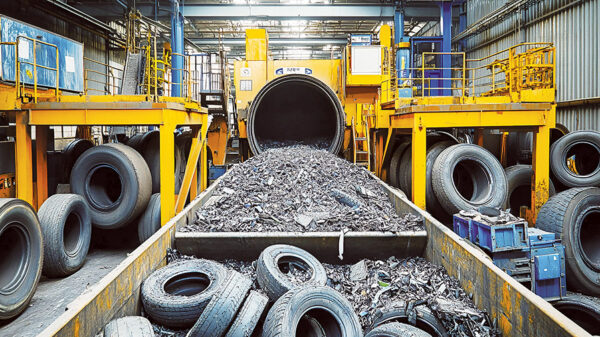The global recycled metal market is gaining traction due to rapid urbanization and industrialization.
Metal scrap generated from discarded machineries, construction materials, mechanical equipment, automotive, and electrical and electronic components can be reused to produce metals through an energy efficient method. Aluminum, zinc, lead, tin, gold, nickel, copper, silver, platinum, iron and steel, and palladium are the metals that can be recycled.
The growing awareness among industries such as automotive, building and construction and machinery manufacturing regarding the benefits of recycled metals is likely to boost market growth. Industries are turning to eco-friendly raw materials in order to curb greenhouse gas emission and reduce their carbon footprint. However, collection and sorting of domestic materials to be recycled can be expensive, time consuming, and require energy, which are bound to work against the market growth.
According to Transparency Market Research, the global recycled metal market is anticipated to reach US$476.2 billion by 2024 from its initial value of US$312.9 billion in 2015, registering a staggering CAGR of 4.8 percent from 2016 to 2024.
Construction related activities push sales of recycled metals
Based on product, the global recycled metal market is segmented into ferrous and nonferrous metals. The ferrous metal segment is known to account for a large market share in 2015 and is expected to continue dominating the market during the forecast period as well. Among ferrous metals, iron and steel are the most prominent product types and find application in the manufacturing of electrical devices, industrial machineries and equipment, construction materials, and vehicles. Recycled aluminum, among nonferrous metals, is known to hold a significant share in the total demand for recycled metals.
In terms of end user, the building and construction sector is expected to grow over the said period owing to a high rate of industrialization and urbanization. Construction related activities are at their peak, especially in emerging economies, thereby driving the market segment. The automotive sector is another promising end-user segment that is projected to expand in the future. Other end-user segments include electrical and electronics, industrial machinery, and shipbuilding.
Environmental concerns to propel demand in Europe
In Asia, China currently generates high revenue, followed by India and is expected to grow further over the forecast period. Malaysia, Indonesia, South Korea, Singapore, and Thailand are other countries that play a crucial role in driving the demand for recycled metals in Asia. Due to constant economic growth and rising gross domestic product in these nations, the construction, automotive, and industrial machinery industries have received tremendous impetus, invariably increasing the market growth of Asia Pacific, and has also given much needed boost to infrastructure activities.
Growing environmental awareness among consumers and manufacturers alike is one of the key factors driving the market for recycled metals in Europe. Moreover, adoption of recycled metal is gaining prominence in this region due to strict regulatory laws and supportive policies of various governments, especially in countries such as Germany and Italy. Fueled by the increase in building and construction activities, growth in automobile production, and rising consumer awareness regarding the impact of greenhouse gases and the benefits of recycled metal, the market for recycled metals in regions such as the Middle East and Africa as well as Latin America is expected to expand.
OmniSource Corporation, European Recycled Metal, Schnitzer Steel Industries, Inc., Nucor Corporation, and Sims Metal Management Ltd are some of the leading players operating in the global recycled metal market.
Transparency Market Research is a global market intelligence company providing business information reports and services.
Published in the April 2017 Edition of American Recycler News






